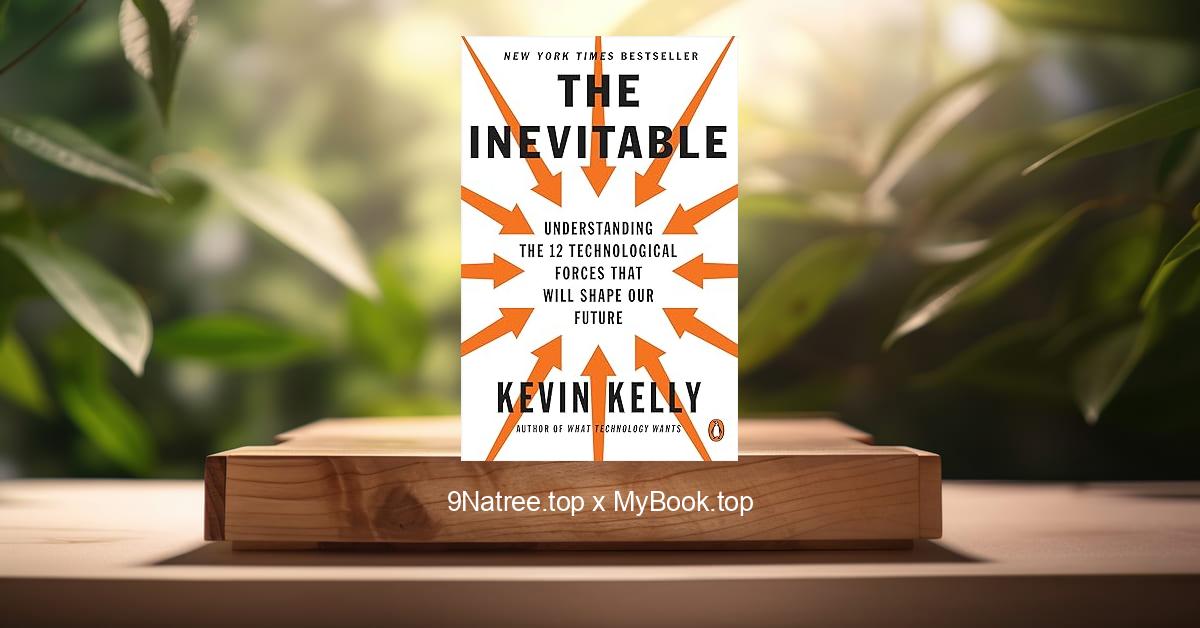Show Notes
Buy on Amazon: https://www.amazon.com/dp/B01JEMROIU?tag=9natree-20
Read more: https://mybook.top/read/B01JEMROIU/
#FourthIndustrialRevolution #KlausSchwab #ArtificialIntelligence #InternetofThings #TechnologicalAdvancements #EconomicDisruption #SocialImpactofTechnology #FutureofWork
These are takeaways from this book.
Firstly, The Concept of the Fourth Industrial Revolution, The Fourth Industrial Revolution represents a fundamental change in the way we live, work, and relate to one another. It is characterized by a fusion of technologies that blurs the lines between the physical, digital, and biological spheres. Unlike previous industrial revolutions, which were marked primarily by advances in manufacturing and production techniques, this revolution is powered by breakthroughs in various fields such as artificial intelligence, robotics, the Internet of Things, autonomous vehicles, 3-D printing, nanotechnology, biotechnology, materials science, energy storage, and quantum computing. Schwab articulates how these technologies have the potential to connect billions more people to digital networks, dramatically increase the efficiency of businesses, and regenerate the natural environment through better asset management.
Secondly, Impact on Economies and Industries, Schwab examines how the Fourth Industrial Revolution is disrupting almost every industry in every country by altering the things we value, the way we create value, and the methods by which we deliver this value. This revolution has the capacity to raise global income levels and improve the quality of life for populations around the world while simultaneously creating new market opportunities. However, it also presents challenges such as the displacement of jobs due to automation and the increasing capability of machines to perform tasks better than humans. The book delves into the potential economic implications, including shifts in labor markets, the rise of new types of jobs, and the need for a recalibration of workforce skills.
Thirdly, Societal Implications, Schwab goes beyond the economic and industrial implications to address the societal impacts of the Fourth Industrial Revolution. He outlines the ways in which technology is reshaping the fabric of society, from changing family structures to shifting power dynamics and the way we perceive privacy and personal space. Technologies associated with this revolution, such as social media and mobile devices, are altering human interactions and communication patterns, leading to a redefinition of social norms. The book discusses the importance of creating inclusive, human-centered policies that ensure that the benefits of these technological advancements are accessible to all members of society.
Fourthly, Governance and Security, In this section, Schwab tackles the complex issues of governance and security in the age of the Fourth Industrial Revolution. With the proliferation of new technologies, governments and institutions face the challenge of regulating and controlling their use without stifacing innovation. Schwab discusses the need for global cooperation and the development of new frameworks to manage the ethical and legal implications of emerging technologies. He emphasizes the importance of ensuring cybersecurity, protecting individual privacy, and maintaining social stability in the face of rapid technological change.
Lastly, Ethical Considerations and the Future, Finally, Schwab addresses the ethical considerations and the possible futures shaped by the Fourth Industrial Revolution. He delves into the moral dilemmas posed by advancements in biotechnology and artificial intelligence, including questions about what it means to be human and the limits of technological augmentation. The book reflects on the need for a common set of values and ethical frameworks to guide the development and application of new technologies. Schwab concludes with a visionary outlook on the potential for these technological advancements to foster a more inclusive, sustainable, and equitable world, highlighting the role of individuals, businesses, and governments in shaping this future.
In conclusion, ‘The Fourth Industrial Revolution’ is a crucial read for policymakers, business leaders, and the general public alike. It offers profound insights into the dramatic shifts being caused by technological advancements in our societies and economies. Schwab brilliantly articulates the challenges and opportunities that lie ahead, urging readers to actively participate in shaping the future. This book can serve as a guide to understanding the dynamics of the current economic landscape and the forces molding the future. By illustrating the potential for leveraging technology to address global challenges, Schwab inspires hope for creating a more inclusive, sustainable, and equitable world. It’s an essential read for anyone interested in the influence of technology on our lives and the global economy, providing a roadmap for navigating the complexities of the twenty-first century.
![[Review] The Fourth Industrial Revolution (Professor Dr.-Ing. Klaus Schwab) Summarized](https://episodes.castos.com/660078c6833215-59505987/images/1699856/c1a-085k3-qxnnrg32hx3g-jkbnk2.jpg)




